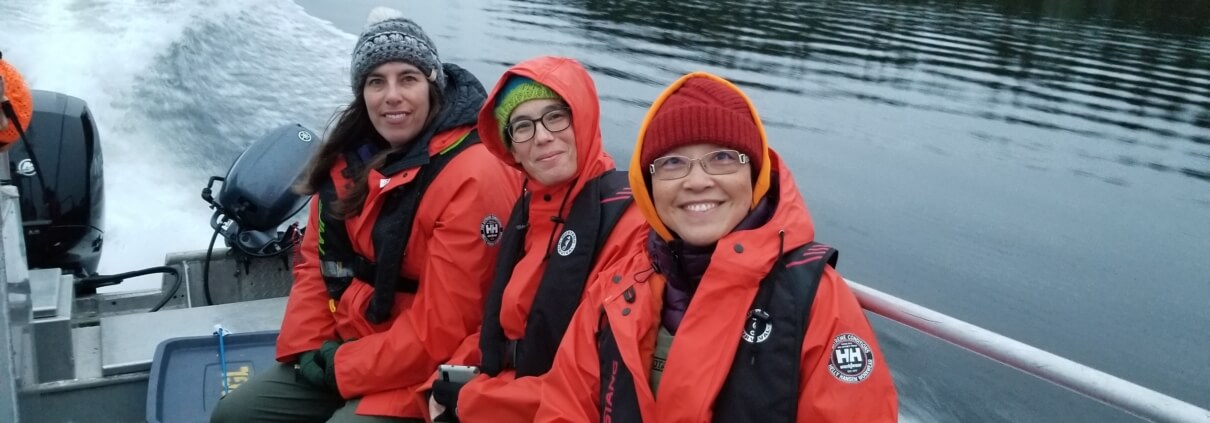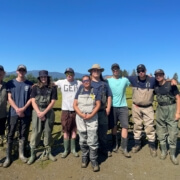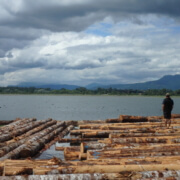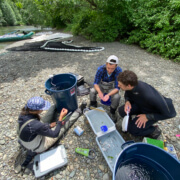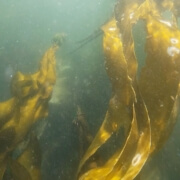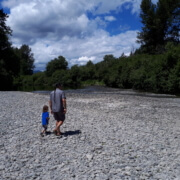New tools help deliver insights into fish health
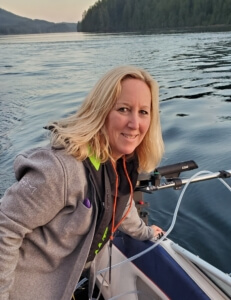
Kristi Miller-Saunders of Fisheries and Oceans Canada (DFO) leads a team of researchers that focus on infectious disease and environmental stress in salmon. PSF has partnered with her lab since 2013 to develop and deploy genomic technology that can bring clarity to the role of environmental stress and disease in salmon.
“Kristi and her whole team have been instrumental in advancing our understanding of how pathogens impact wild Pacific salmon,” says Andrew Bateman, manager of PSF’s Salmon Health program. “Using cutting-edge genetic tools, her lab can rapidly draw conclusions about health, stress, and disease in salmon that we only dreamt of 20 years ago.”
Q&A with Kristi Miller-Saunders:
How has technology aided your research discoveries?
Innovative technology is allowing us to ask questions that were always considered too difficult to answer, especially in a field setting. For example, we’ve developed genomic tests called Fit-Chips, which offer the first technology to understand cumulative stressors of salmon. They show how salmon are affected by alterations in their environment due to climate change as well as immediate stressors such as parasites.
How does a Fit-Chip work?
Salmon Fit-Chips recognize specific stressors in salmon, similar to those used in personalized human medicine.
Have you ever gone to your doctor and asked to be tested for all viruses and bacteria? We can do that for salmon, for up to 96 fish at once!
As salmon environments are becoming more stressful, and opportunistic diseases are often triggered by stress, we built tools to recognize different kinds of stress. With non-lethal gill samples, Fit-Chips tell us when and where fish are most compromised and which diseases are more likely associated with population-level impacts.
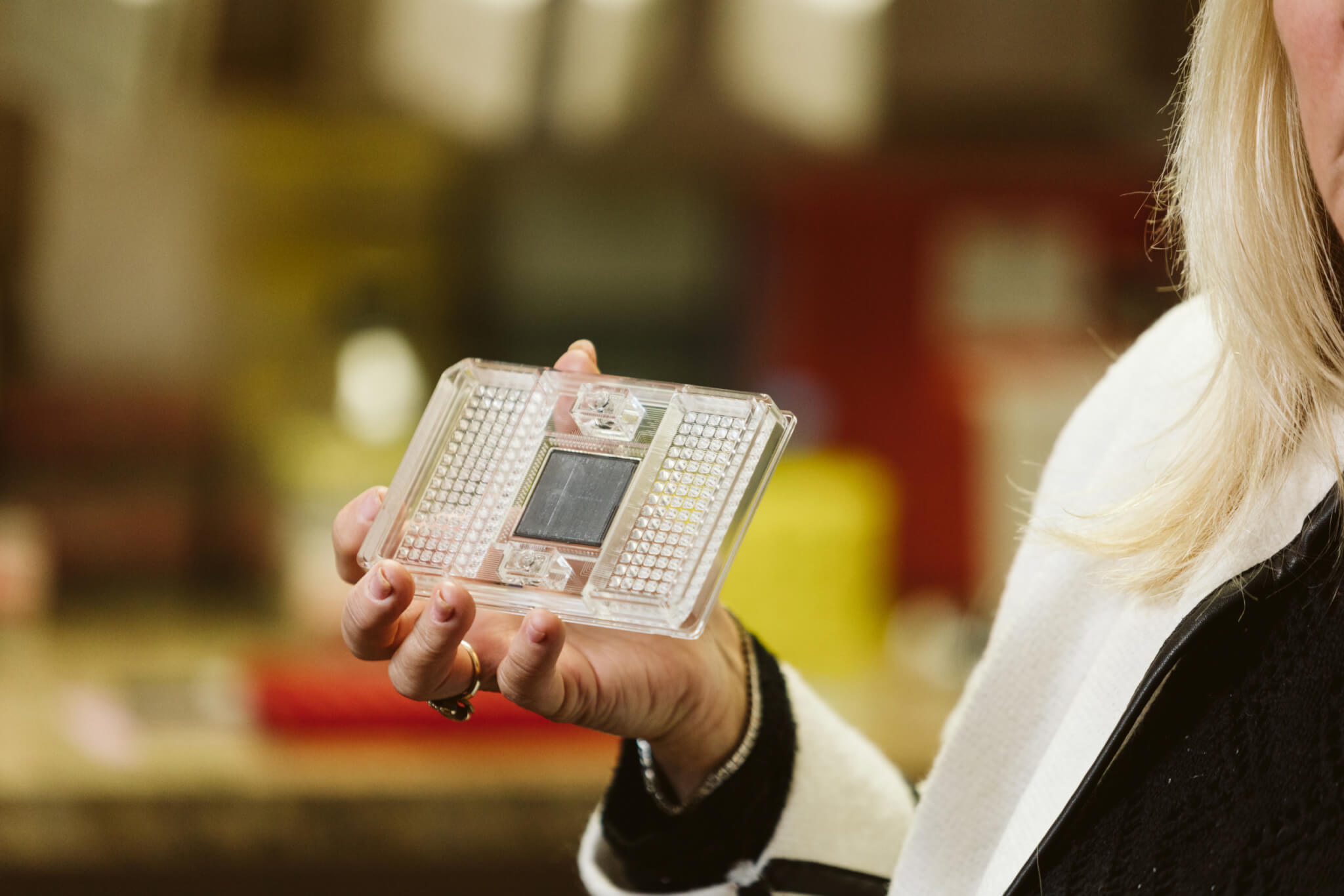
Dr. Miller-Saunders holds a Salmon Fit-Chip. (Brandon Deepwell)
Why are Fit-Chips important?
Fit-Chips provide a tool to understand the cumulative factors associated with climate change and human-caused disruptions on salmon health. Climate change has many adverse impacts for salmon. It can alter the oxygen level, raise temperatures, increase salinities, and change the mixture of organisms that wild salmon encounter.
All of these elements come into play in a cumulative way to influence whether salmon will survive or perish. Importantly, if we understand the interplay between stressors and diseases that are undermining salmon survival, where they are likely to occur, and whether they are influenced by human activities, we can develop mitigation strategies to reduce their impact.
We can only mitigate what we can control, which means that stressors enhanced by industrialization or other human activities are where we need to concentrate our efforts.
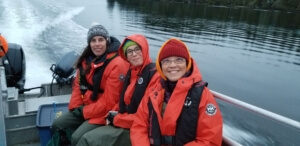
Left to right: Angela Schulze, Amy Tabata, Shaorong Li.
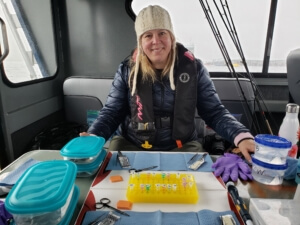
Karia Kaukinen.
A special thank you goes out to all the Salmon Health research collaborators. Miller-Saunders’ team at DFO’s Pacific Biological Station includes: Arash Akbarzadeh, Art Bass, Karia Kaukinen, Shaorong Li, Tobi Ming, and Angela Schulze. Collaborators from PSF and universities include: Jonathan Archambault, Andrew Bateman, William Bugg, Christoph Deeg (PSF & UBC), Emiliano Di Cicco, Sean Godwin, Gideon Mordecai (UBC), Kaleb Mantha-Rensi, Amy Teffer (University of Massachusetts, Amherst), and Kayla Zielke.
Earlier this year, PSF’s Salmon Health Program received a vital $450,000 pledge from the North Family Foundation led by long-time salmon advocates Rudy and Patricia North. The gift advances important research into the cumulative ecological stressors salmon face at a critical time when half of B.C.’s wild populations are in decline.
“Through my lifetime, I’ve been a passionate advocate for our marine ecosystems and salmon research and recovery efforts. My hope is that this donation, together with the support of others in our community, will advance the research required to galvanize action to stop the dramatic decline in salmon populations that we have all witnessed in recent decades,” says Rudy North.

